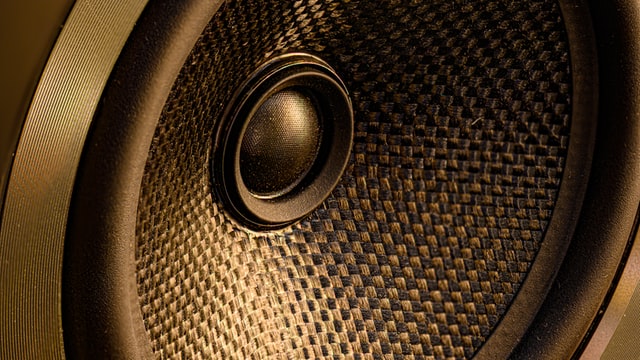You’ve bought a pair of bookshelf speakers. Your setup sounds great. You’re now wondering if something is missing. Do I need a subwoofer? It’s a question we get a lot. The answer is not a simple yes or no. Subwoofers are complex devices that integrate many different functions into one cabinet. It’s impossible to know how a subwoofer benefits without more information.
A subwoofer is not a requirement for a fulfilling audio experience. Adding a sub with bookshelf speakers does undoubtedly have benefits. We’ll explain what subwoofers do. We are also going to talk about how they add to movies and music. This will help you decide how much a subwoofer will add to your experience.
Table of Contents
What Is A Subwoofer?
Subwoofers typically produce a frequency range of 20-200Hz. If your bookshelf speakers can’t produce the low end, then a subwoofer will do it for you. Very low frequencies fall into the sub-bass category. Bookshelf speakers are unable to produce these frequencies.
Even if you’ve invested in a premium pair of bookshelf speakers, they can’t produce the full sound spectrum all by themselves. They’re meant to be partnered with a subwoofer for an optimal experience. When both are paired together, it creates a wider frequency response.
Are My Bookshelf Speakers Enough for Bass?

Bookshelf speakers typically have a frequency response of around 50-20,000Hz. The result is the production of frequencies in the mid and high end of the spectrum. Unfortunately, their low-frequency response is lacking. That is why many people add a dedicated subwoofer. This creates a 2.1 speaker system.
Some bookshelf speakers have a frequency response below 40Hz. While impressive, it still can’t compare to a dedicated subwoofer. Placement is also important here. People often place speakers based on aesthetics instead of performance. Speaker placement heavily impacts bass performance. A dedicated subwoofer allows for more flexible placement.
Sound can also vary from room to room. Bass performance may be full and hard-hitting right in your living room. Moving to a similarly sized room can change this. Having the flexibility to place drivers around a room improve performance. It is also the first step toward a surround sound home theater system. A sub can also be placed on a floor making placement that much easier.
Benefits of Adding A Subwoofer

Wider Soundstage
Frequencies in any audio below 40Hz won’t be captured by most bookshelf speakers. What is lost may not be obvious. Bringing these lower frequencies into your listening experience will open up the soundstage. This wider soundstage is a more accurate representation of what the artist intended. This is true for music and movies.
Hard-Hitting Bass
If you want that feeling when your chest vibrates like in songs like Rihanna’s, you can experience it. The woofers on bookshelf speakers just won’t do the job. This bass you can feel is typically in the 20-60Hz range. Adding a subwoofer will extend your bass response down to those 25 or 30Hz levels of deep, hard-hitting bass that is felt as much as heard. You can transform your listening experience by adding a sub to your main speakers.
Brings Home Theater to Life
Adding a subwoofer to home theater systems will bring movies to life. You will be able to hear the sounds of helicopters, battles, and bombs going off. This will all be heard and felt. An immersive home theater experience is worth it. Watching movies feels more realistic because of how intense the sound effects are. Pairing a subwoofer with bookshelf speakers will add this dimension to your audio.
Most Subwoofers Have Built-In Amplifiers
Power is an important component for a bookshelf speaker. A passive bookshelf speaker requires power from an amp or receiver. This probably won’t be necessary for a subwoofer. Unlike bookshelf speakers, most subs have built-in amplification. This removes the hassle of having the sub’s wattage integrated with the rest of your system.
Other Considerations Of Adding Subwoofer
Subwoofers add a ton of value to your speaker system. Consider the listed benefits and how important they are for you. Clearly, more dynamic music is a plus. But do you listen to bass-heavy music? Would a sub add to your music-listening experience? Only you can say. You’ve likely experienced rumbling or punchy bass though. This is a separate experience and you will know how prominent it is in your favorite music.
Headphones have a wider frequency response. If you hear impactful low-end with your headphones, compare it to your bookshelf speakers. Does the bass have the same presence as other frequencies? Higher-quality headphones and speakers also bring out more detail. Unfortunately, you may not know how much of that is lost with your subwoofer.
Home theater is a little more straightforward. Bookshelf speakers alone can’t provide the same experience as a full home theater system. Stereo sound doesn’t have the same quality as surround sound. Adding a subwoofer or other speakers is an automatic upgrade you will hear and feel. Audio in movies and tv shows is also designed for setups with multiple speakers. Subwoofers are a key part of building an eventual surround sound speaker system.
You’ll run into some of the same brands when speaker shopping. Companies like Klipsch, JBL, Sony, and Polk are a few of the more common names. They do make subwoofers also. There are also some less well-known companies that specialize in manufacturing subwoofers. SVS subwoofers are just one example. Their subwoofers are extremely popular in the home theater space for their ability to accurately produce quality sub-bass. Monolith is another brand that makes several THX-certified subwoofers.
Bottom Line: Making The Decision
Adding a subwoofer extends your audio’s dynamic range. Without this low-frequency response, you would not be able to hear certain details in the music. They make music more accurate and home theater more immersive. Only you can decide how critical adding a subwoofer is. There are costs associated with adding a subwoofer, but the benefits are also clear. You can refer to our buying guide for more advice on selecting the perfect bookshelf speakers for you.

Keith Collins has been writing for over 15 years for various publications. He’s a lover of music, home theater, and excellent sound quality. His fondness for technology in addition to his non-stop curiosity fuels his writing ventures.